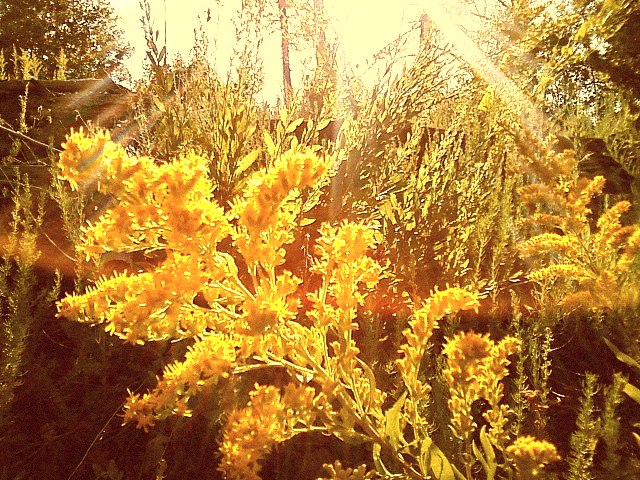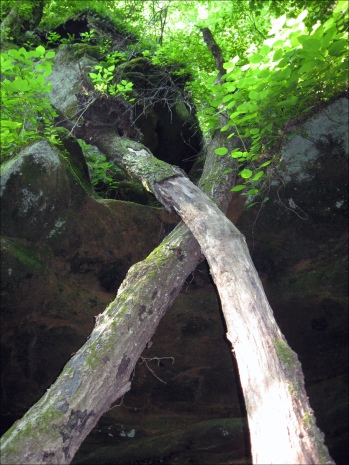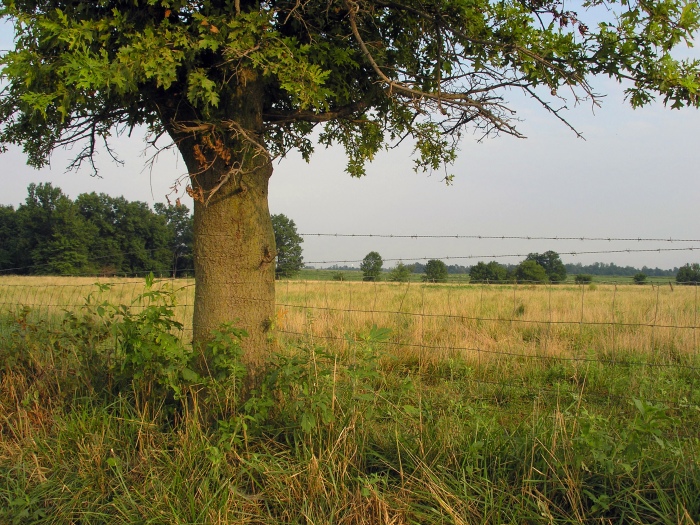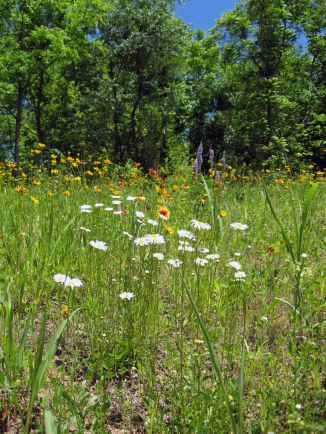
I have had many jobs in my life. I have scrubbed toilets, bussed tables, sold trinkets, stripped and posed for an 80 year old sculptor. I have been a business owner; I have been a corporate drone. Perhaps my most important role, however, has been as a nonprofit professional, raising money for a myriad of good missions over the years. Still, looking back, I do not associate any of these roles with who I am as a human, nor would I have passed up the chance to quit any given job to pursue a life of exploration, learning and spiritual growth.
There is no job or career I have taken on that supplants my desire to run, to move, to wander this world with an inexhaustible curiosity no career could ever sate. I simply do not believe in career or job as being something natural to us. Work is of course a part of being alive. We work to eat, keep warm, find a mate and gain security… but work was never meant to consume us in such a structured manner of identity and value. The need to work would often arise with the need for outcome. Spontaneity, chance and flexibility revolved around the perils and payoffs of work – reward or lack thereof. As we formed community, roles were assigned, but again, work was the basis of an outcome and not a descriptor with false value and meaning assigned per se, until we began to move into such a context.
From industrial perils to blue collar masses to college-fresh degree holders entering into the career world, we have replaced the elements of work that make it work with fantasies of identity, power and prestige. Work no longer produced only results = i.e. food, house, car; work became our pinnacle form of identity and pride. Academic institutions pushed the new “educated worker” with the mantra of a more enlightened nation and a workforce of specialists, making higher wages. In fact, the past 80 years have funneled us into believing that we can earn our worth. This philosophy assumes that our worth is based on monetary gain, academic success, or – in the case of many conditioned women – our ability to work someone else’s gain.
The problems inherent in this phony empire of career pomp are becoming more apparent as the disparity of classes and make-believe markets are creating deeper gouges in the fabric of this economic dreamscape. But I am not writing about the current fiscal crisis and profound inequity between classes. Ultimately, what I argue is why must we even subject ourselves to this?
As someone who grew up in rural lower middle class/poverty Americana, I was – despite being a bright and relatively good student – encouraged to find a job at one of the local factories in our mid-sized community. On a positive day, my guidance counselor might have suggested community college. You see, poor, rural folks were to be tailored for industry. This was the early 90s – not the early 1900s.
Thankfully, my stubborn gene kept me from succumbing to limited suggestions, and I left the small town and traveled throughout North America, working various odd jobs to support me as I wrote and experienced a multitude of places I thought I might need to see: Seattle, Boston, New York, LA… and the plethora of tiny burgs full of artists and writers, weirdoes and geeks. My life living paycheck to paycheck felt normal – I existed day-to-day and actually don’t recall worrying about the next source of income, whether I’d have a savings account or if I could afford to fly back to Indiana when my 1980 Honda hatchback (with its still working 8-track player) finally and stubbornly gave in to the auto graveyard.
Of course, this story does not serve to advocate the life of the young vagabond to those who want to have kids and settle in to some kind of community. Perhaps the sheer fact of youth and curiosity led to me to this pathway, but I am most certainly happy I took this course and started the ebb of wanderlust at a time most appropriate for passage into adulthood.
This story, however, is not a moral fable about lessons that lead one to buy that house, that car, that oceanfront property. This story is about someone who has decided to leave every myth behind entirely. For me, success comes through community, creativity and self-expression. I don’t care if I if I ever own the latest gizmo x, y or z. I want the kind of life that distinguishes perceived need versus impact. I want the kind of freedom that doesn’t require upgrading product every year.
Now, I can hear you screaming, “Luddite!” at the top of your lungs, but what I am advocating is not an elimination of technology, but rather a moderation of reliance upon such. There are always vast benefits in being able to communicate and learn globally, relate to new scientific advances and build social activism on a level never once achievable. However, just as with any other product or outlet, we can reduce blind adherence to buying these tools when we view them as tools and not an extension of worth. Any time I have worked with teens and early adults, I have witnessed the incredible social impact of owning the latest tech toy or cell. It truly is brand talking and not necessarily need or advancement of intellect or action.
Getting back to work… there are many choices at hand for those seeking more fulfillment in life and moving away from the 8am-6pm dregs. Some suggestions to reduce economic enslavement are as follows:
1. Outline what you want
As a survivor of domestic violence, this obvious fact-finding process was very arduous until I was able to honor the internal. Before any of us can begin to manifest work as an expression, we must know Self and our subsequent values, ethics and hopes. Make a list of your deepest, most purposeful intentions to begin.
2. Adjust your habits
Ah, this is where action comes into play. Many of my dissociative habits – such as drinking and running – were counterproductive to the life I outlined and the beliefs I held close. What habits do you allow to run the show? How do your habits prevent you from engaging in your life and the life you desire?
3. Resist fear
I recently heard from a wise female friend how she made a decision to stop the “scary movies” she was playing in her mind. I connected to this on an intuitive level – my life was almost held hostage by potential horrific scenes of future atrocities. In order to manifest something new, we can maintain a state of mind that receives the energy of the day and resists future posturizing.
4. Reach out and accept
Reaching out and forming community, as well as getting sage wisdom regarding our chosen paths, are essential elements to growth and moving into a work that truly meets our soul-needs.
Allow yourself the guidance to listen, learn and apply.
5. Pass it along
When the time is right, pay it forward! Think of the myriad ways you have been told, “no” and pass the gifts of independence to others.
When I think about the ongoing theme of dissuasion from my true talents and calling, I am even more motivated to help others cultivate a path that honors their values, beliefs and talents. Work – that is, the stuff we do to attain housing, food and security – need not become our primary purpose. Work can be supplemental, but our paths and expressions can be aligned with our life at large. Purpose is so different from work. Purpose transposes talents with communal benefits and blesses us beyond measure.
It is a true gift to begin to look at the quality of one’s life, even in dire economic or health circumstances. Open to the possibilities inherent in each day and remain a student – the world needs more iconoclasts, willing to bridge the pressures of society while supporting the ideologies related to independent thought, action and path.


 oil up the walnuts over an open fire, then use the stain on their muzzleloaders. It’s deer season. The trees are in full fall plumage and the odor of fireplaces and errant embers blankets the terrain. The fields are aglow with gold and bronze –between the black dots of cattle, the wheat and grasses burn across the landscape and rise into the outline of crows and trees, the somber shades of a darkening season.
oil up the walnuts over an open fire, then use the stain on their muzzleloaders. It’s deer season. The trees are in full fall plumage and the odor of fireplaces and errant embers blankets the terrain. The fields are aglow with gold and bronze –between the black dots of cattle, the wheat and grasses burn across the landscape and rise into the outline of crows and trees, the somber shades of a darkening season.
 he violent lineage on through commerce, procreation, and self-abasement. This is the dominance of a hopeless world of acquisition and subterfuge. This is the one who comes to a visual feast of delight with no eyes.
he violent lineage on through commerce, procreation, and self-abasement. This is the dominance of a hopeless world of acquisition and subterfuge. This is the one who comes to a visual feast of delight with no eyes.

